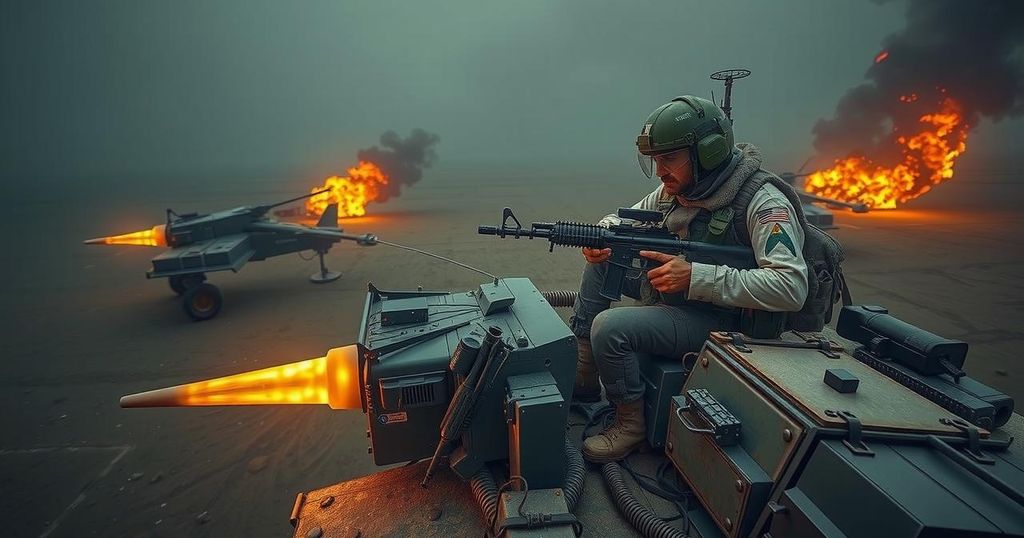Egypt Strengthens Military Presence in Somalia Ahead of Ethiopian Withdrawal Deadline
Egypt is enhancing its military mission in Somalia ahead of the December 31 deadline for Ethiopian troop withdrawal. Through a cooperation agreement, Egypt has dispatched military personnel and equipment to support Somali forces against Al Shabab. Amid escalating tensions with Ethiopia, Egypt aims to replace Ethiopian peacekeepers, reflecting profound regional geopolitical dynamics and disputes over the Nile’s resources.
In anticipation of the December 31 deadline for the withdrawal of Ethiopian troops from Somalia, Egypt is significantly enhancing its military involvement in the Horn of Africa. Sources report that Egypt, collaborating with the Somali government, has been developing security forces to combat Al Qaeda-aligned groups, particularly Al Shabab. Following an August military cooperation agreement, Egypt has dispatched military personnel, weapons, trainers, and counter-terrorism units to Somalia. An estimated thousands of Egyptian troops are set to partake in this mission as the deadline approaches. Ethiopia, currently maintaining approximately 22,000 troops in Somalia under a bilateral agreement and as a portion of an African Union initiative, is at odds with both Egypt and Somalia. Tensions arise from Ethiopia’s recent decision to grant itself access to a port in Somaliland, which Somalia alleges undermines its sovereignty. Cairo plans to take over the role of Ethiopian peacekeepers, a move that Somalia has publicly endorsed. Egyptian-backed Somali forces have begun positioning themselves along supply routes utilized by the Ethiopian contingent to deter any potential troop reinforcements by Ethiopia prior to the withdrawal deadline. Following Egypt’s military maneuvers in Somalia, Ethiopia reportedly increased its troop levels to counter potential threats, generating heightened military tensions in the region. Ethiopian officials express concern that support and arms from external nations may exacerbate instability in Somalia, potentially falling into the hands of terrorists. In a recent online water conference, Egyptian President Abdel Fattah El Sisi emphasized the crucial role of the River Nile in Egypt’s survival and national security, reiterating the importance of resolving ongoing disputes regarding the Grand Ethiopian Renaissance Dam (GERD). Egypt has struggled for over a decade to establish a legally binding agreement concerning the dam’s operation with Ethiopia, which continues its development to bolster its economy despite Egypt’s apprehensions about water share reductions. Last week, President El Sisi convened with leaders from Somalia and Eritrea in Asmara, openly expressing Egypt’s commitment to supporting Somalia in restoring its security, amidst the ongoing strain posed by Ethiopia’s military and political maneuvers in the region. This growing alliance with Eritrea highlights Egypt’s strategic intentions to confront Ethiopia while enhancing regional stability.
The military dynamics in the Horn of Africa, particularly concerning Somalia, Ethiopia, and Egypt, are increasingly complex, marked by historical tensions and geopolitical maneuvering. Egypt’s strategic interests in Somalia are closely tied to its apprehensions about Ethiopia’s control over the Nile River, which is essential for Egypt’s water resources. Simultaneously, Somalia’s relationship with both Egypt and Ethiopia is affected by territorial and sovereignty-related issues, underscoring a broader regional conflict involving military cooperation, insurgency, and international diplomacy.
In summary, Egypt’s military involvement in Somalia signifies not only a strategic response to the upcoming Ethiopian troop withdrawal but also an assertion of its influence in the Horn of Africa amidst regional tensions and unresolved bilateral disputes. With both nations clearly positioning themselves against Ethiopia, the implications for security, sovereignty, and diplomatic relationships in the region continue to evolve, demanding careful observation and engagement from international stakeholders.
Original Source: www.thenationalnews.com




Post Comment